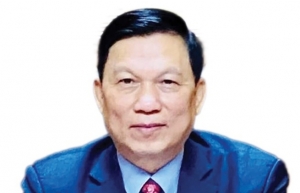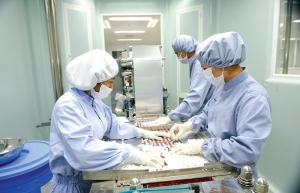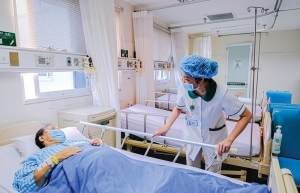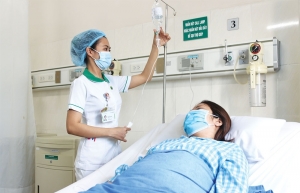Hospitals look for way out over cost traps in tender rules
According to a source from the Ministry of Health (MoH), the ministry is working on amendments to Circular No.14/2020/TT-BYT dated July 2020, which regulates the bidding process of medical devices for public health establishments, and other related regulations to facilitate future tenders.
 |
| Hospitals look for way out over cost traps in tender rules - illustration photo |
Acting Minister of Health Dao Hong Lan said, “It is heart-rending to know that some patients are having to buy medical supplies themselves for their treatment. I have never seen this in the history of the sector. We urge comments and ideas from hospitals about possible changes in existing regulations and then submit them to the government.”
Along with submitting a resolution to the government, the MoH is also discussing with relevant ministries and agencies amending a number of regulations, Lan added.
At present, hospitals and medical suppliers are complaining about problems with time-consuming bidding regulations, while medical supplies and drugs from tenders are failing to meet their treatment requirements.
Circular 14 regulates that when estimating the contract value, the health facility shall examine the successful bids within 12 months – a regulation that is deemed inappropriate with market price rules.
Moreover, under Circular No.58/2016/TT-BTC from the Ministry of Finance in 2016, the quotation of the goods that need to be purchased should be provided by at least three local suppliers in order to use as the basis for determining the procurement value. If it is unable to get the quotation from three local suppliers, the quotation provided by suppliers in other areas may be referred to obtain at least three quotations for determining the procurement value. However, some medical supplies and pharmaceuticals have only one manufacturer.
Cho Ray Hospital in Ho Chi Minh City proposes bidding prices of medical equipment, and those prices of supplies and drugs must be as reasonable as possible, based on practical demands, and decided by hospitals to ensure treatment efficiency. The hospital has so far sent 14 petitions about the issue.
At the meeting on August 21 hosted by the MoH with hospitals and medical facilities, Cho Ray director Nguyen Tri Thuc said, “The head of Surgery has pressingly asked me why I have bought surgical knives at cheap prices. Among the barriers in tendering rules, price is the most pressing issue for us.”
He proposed allowing hospitals of level 1 and special grade to select brand manufactures for their purchase of advanced high-tech treatment equipment.
Like Cho Ray, Bach Mai Hospital and the Central Otolaryngology Hospital in Hanoi are facing a similar situation. The latter said that it has lists of hundreds of chemicals and medical supplies that have failed to attain capable contractors.
Meanwhile, as much as 70 per cent of bidding packages for chemicals or supplies used for digestion and cardiovascular intervention treatment at Bach Mai failed due to price problems, leading to a lack of drugs.
Dr. Pham Tuan Canh, director of the Central Otolaryngology Hospital, said, “There should be national centralised bidding for all the lists of drugs, medical devices, and supplies to help solve the situation.”
In addition, Cho Ray and other hospitals are also facing challenges in tenders of testing machines. Currently, the majority of advanced testing machines use compatible chemicals only. Hospitals have asked the government and the MoH to accept a placement instrument model, and tenders/prices of chemicals to be managed by either the MoH or through national centralised bidding.
The hospitals suffering the most expect that, even though a full resolution will take time, there will also have to be a short-term answer because if the situation still persists, many health establishments will lack medical devices, thus negatively affecting patients.
Pham Khanh Phong Lan, a National Assembly deputy from Ho Chi Minh City, added, “The issue of a lack of medical devices and supplies is spreading, and affecting treatment efficiency. This should be considered a state of emergency so that an application of certain legal grounds can soon solve the problem.”
 | Accelerating the vital digital transformation of hospitals In recent years the healthcare sector has made breakthroughs in IT application, and approaching digital technologies like the Internet of Things, AI, VR, cloud computing, big data, and more. All hospitals nationwide deploy hospital management information systems, while interconnectivity with the healthcare insurance payment verification system has reached 99.5 per cent. Around 20 health facilities deploy electronic medical records in substitution for paper ones, and 23 hospitals deploy picture archiving and communication systems. |
 | Drugs shortfall requiring clean-up via authorisations Vietnam’s health sector is still challenged by a shortfall of drugs and medical devices in the post-pandemic landscape, urging a strong legal reshuffle ahead to increase business facilitation and market certainty. |
 | Post-pandemic staff headaches continuing for local hospitals While local state-owned hospitals are facing a headache with health staffing, foreign-invested groups are performing well with qualified manpower. |
 | Hospitals bemoan autonomy trial flop After a trial period of two years, state-owned central hospitals are seeking to cease comprehensive autonomy because of financial challenges and legal complications, urging more legal changes ahead. |
What the stars mean:
★ Poor ★ ★ Promising ★★★ Good ★★★★ Very good ★★★★★ Exceptional
Themes: Healthcare Platform
- PM outlines new tasks for healthcare sector
- Opella and Long Chau join forces to enhance digestive and bone health
- Hanoi intensifies airport monitoring amid Nipah disease risks
- Cosmetics rules set for overhaul under draft decree
- Policy obstacles being addressed in drug licensing and renewal
Related Contents
Latest News
More News
- PM outlines new tasks for healthcare sector (February 25, 2026 | 16:00)
- Myriad risks ahead, but ones Vietnam can confront (February 20, 2026 | 15:02)
- Vietnam making the leap into AI and semiconductors (February 20, 2026 | 09:37)
- Funding must be activated for semiconductor success (February 20, 2026 | 09:20)
- Resilience as new benchmark for smarter infrastructure (February 19, 2026 | 20:35)
- A golden time to shine within ASEAN (February 19, 2026 | 20:22)
- Vietnam’s pivotal year for advancing sustainability (February 19, 2026 | 08:44)
- Strengthening the core role of industry and trade (February 19, 2026 | 08:35)
- Future orientations for healthcare improvements (February 19, 2026 | 08:29)
- Infrastructure orientations suitable for a new chapter (February 19, 2026 | 08:15)

 Tag:
Tag:



















 Mobile Version
Mobile Version